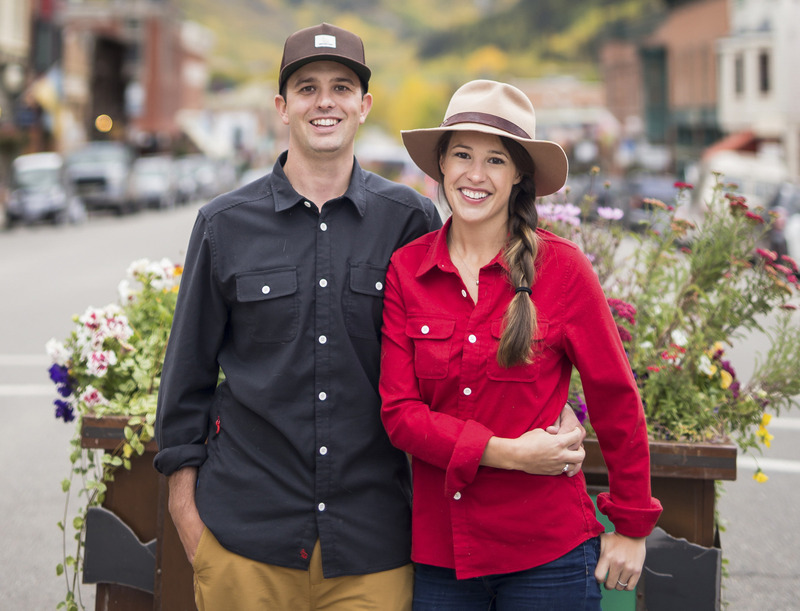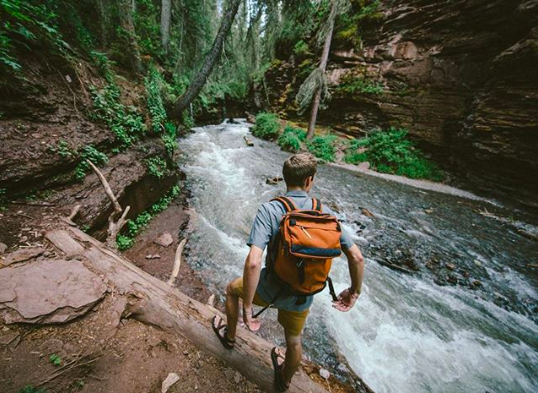A Fresh Perspective on Entrepreneurship in the Age of Workism: A Conversation with Kelly Watters of Western Rise
Work/Life balance. If you work in a large corporation, you have probably heard an HR professional give a 20-minute power point presentation about what it means, coupled with 5 practical steps to achieve better “work/life balance”. If you are still awake, you know exactly what I am talking about. Sounds well and good, but what does it actually mean?
If you are an entrepreneur, you probably shake your head whenever you hear the term. In that kind of environment, it doesn’t seem possible to take a company to the next level without neglecting some, if not most, areas of your life. Maybe I am wrong, but I’ve seen it happen enough to not wonder. This begs the question, what does work/life balance look like in a startup or demanding work environment? How does one create or achieve it?
Recently, I spent time with someone who seems to have more answers about it than most. Meet Kelly Watters, CEO and co-founder of Western Rise. She and her husband, Will, have been at this thing for over 3 years now, but around family owned business for much longer. Having both been raised in entrepreneurial families, they are no strangers to the stresses of running a business. While I love their product and think they live pretty awesome lives out in Telluride, I can’t seem to get over what work/life balance looks like for them. It all starts with passion outside of work. It’s passion outside of work that re-fuels Kelly and Will and keeps them committed through the grind of growing a startup. It’s foundational to how they recruit and hire as well as how they treat employees. It’s what sparked Western Rise in the first place, and ultimately what keeps moving the business forward. I sat down with Kelly to learn more about Western Rise and came away thinking about the success someone can have focusing a little bit more on life and a little bit less on business.

Co-Founder & CEO of Western Rise
Telluride, CO
How and why did you start Western Rise?
I started Western Rise with my co-founder and now husband, Will. We started thinking about it close to seven years ago now, which is kind of crazy to think about. We met when we were both in Vail and he was a fly-fishing guide/ski instructor and I was managing an art gallery. That mostly meant we had very busy and active days. During the day we did a lot of fly-fishing, hiking, rock climbing and at night I would have to go into work and meet clients at the gallery.
We naturally had a lot of outdoor and performance clothing but nothing that transitioned to other activities We noticed a huge gap in the market for performance clothing in everyday styles, that turned into a discussion of, “what would it look like if we made this?” That was how Western Rise was born, founded out of a personal need from the founders and a larger opportunity in the marketplace.
How much experience in apparel did y’all have before this?
I have an undergraduate degree in art and definitely had a lot of experience with textile through that and Will is a third-generation textile developer. His grandfather started a synthetic yarn company back in the 1940’s in northern Georgia. His dad, pivoted the company into a Marine textiles and carpet producer. Now they make pretty much anything that goes inside of a boat. Will used to do R&D for that company which meant he was responsible for finding and bringing new products to market. Through that he got a lot of experience in textiles, fiber development, and international sourcing. We combined both of our backgrounds and use a lot of that experience every day at Western Rise.
In one or two sentences, how would you define Western Rise?
At Western Rise, we create performance apparel for every day. We are reimagining what clothing can be and the wardrobe of the future. It is our goal to simplify down your wardrobe so that you can experience more with less. We really think that it is possible to have one set of clothing that works equally well for outdoor, travel, and every day.
I love that that Vision. I’ve got one of your Oxford button-downs and it’s probably my favorite shirt. It’s one of those things I could wear all the time whether it’s the office or weekend. With that vision in mind, how does that translate to the day-to-day culture with employees?
We’re based out of Telluride, Colorado and Western Rise was really born in the mountains. We have tried to be intentional about what that mountain culture means to our company as we continue to expand. We think about structuring things in a way that enables the team to pursue their passions. That gives them more excitement from their outside life which helps people fulfill their roles at Western Rise at a higher level.
Right now, we are almost an entirely remote team. Will and I are in Telluride, Colorado but we don’t require any of our employees to be here. This means we have fully flexible hours for all of our employees, including our head of customer experience, which means we work on the honor system. In order for that to work, we have to hire people who are highly self-motivated and great communicators. We don’t really care if you take the afternoon off to go biking as long as the work that needs to get done, gets done. It also requires people having the vision to keep working on company goals when they finish a project.
Have you had a lot of issues with employees that can’t work in that kind of environment?
Knock on wood, we’re very lucky that we have not had those issues yet. We’re also very intentional and pretty rigorous in our on-boarding process. We hire people who have been vetted by other people we respect in the space. We also hire much more for characteristic style than we do for hard skill sets. Obviously, there are certain things with the product line manager, designer, and things we need hard skills for, but we care a lot more about what intrinsically motivates you and drives you. If you’re eager about learning and attacking new problems, if you like to learn, if you’re empathetic and interested in other people’s perspectives and self-motivated, you tend to be a great remote worker.
How has your view towards leadership changed especially while working with a remote team?
It’s interesting because I’ve been managing teams from multiple different cultures for the last 10 years. I think my management style has definitely become less controlling. I think part of that has to do with myself personally maturing, but also moving from a situation where we’re all in the office together to being a remote team and having to trust my team even more. Right now, I’m focusing on how I can better enable my team and set them up for success so that they can take control over their areas and kind of run with it. I want employees to be really successful and be able to make those decisions without having to talk to me to make decisions.
It’s taken really learning to independently motivate and incentivize the team so that they’re bought in and really understand the goals and the mission of the company. Figuring that out is tough. It’s always in flux because every person is slightly different. I am always very intrigued with what makes individual people motivated and tick. Knowing that changes my approach based on the person




You must be logged in to post a comment.